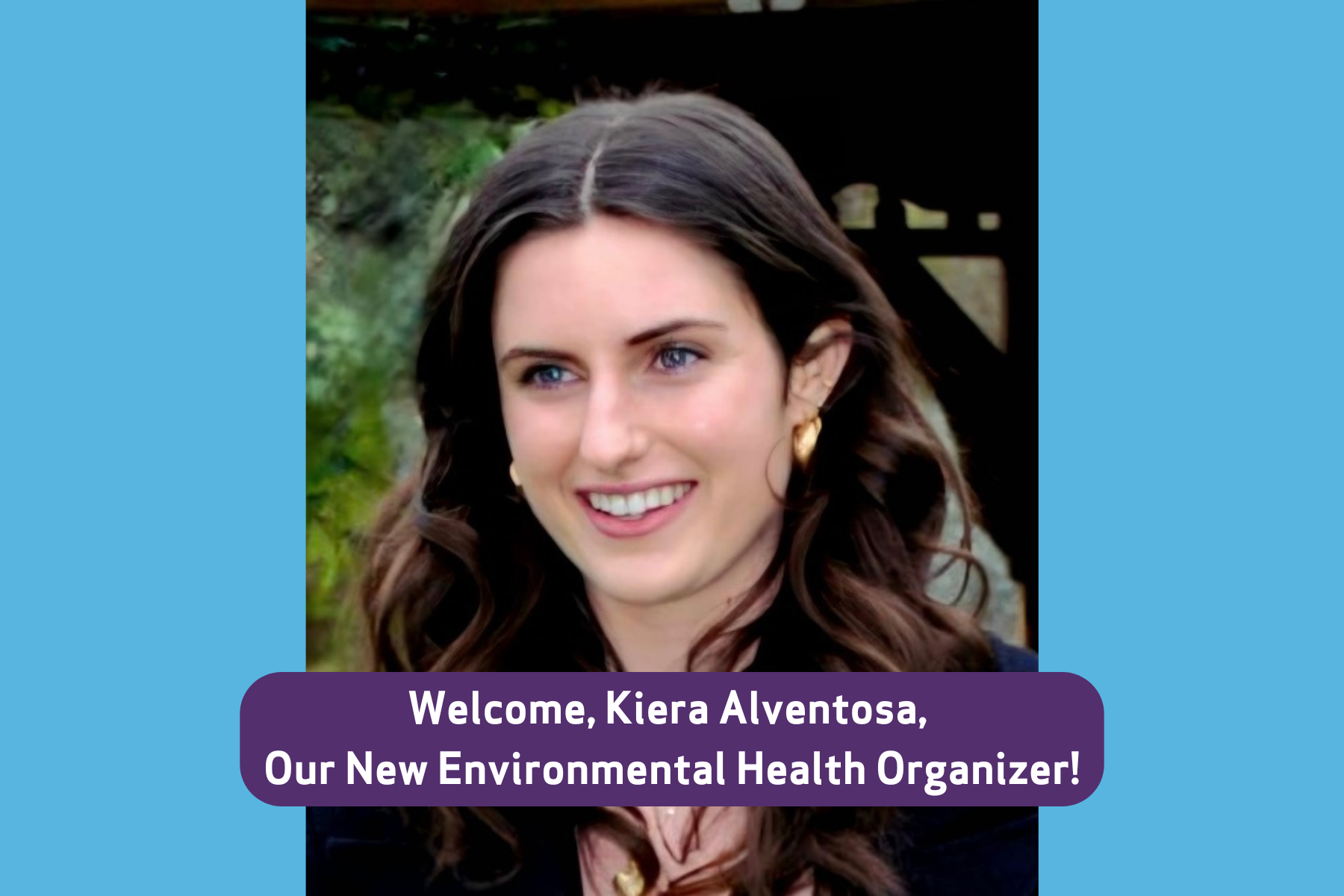
Fighting toxic threats to drinking water is at the core of Clean Water Action’s work, so we are thrilled to welcome our new Environmental Health Organizer, Kiera Alventosa, to our growing team! Kiera will lead our campaign to help communities identify and remove lead pipes and support our work on other health hazards like PFAS.
Kiera has been connected to environmental justice throughout her life. Her research, work, and activism have been acts of remembering her grandfather, and his early passing from cancer caused by his exposure to agricultural pesticides. In 2023, she graduated with distinction from the University of Oxford with a Master of Science in Nature, Society and Environmental Governance, specializing in environmental governance through community power and policy activism. Kiera came to Clean Water Action from a range of work for environmental justice at the community level including advocating alongside Latino farmworkers in the Pioneer Valley, Massachusetts and testing the groundwater for PFAS on Long Island.
Get to know more about Kiera in our Q and A!
Can you talk more about how your background guides your passion for environmental justice organizing?
Growing up, environmental health and justice were conversations in my home. My family’s background, experiences, and cultural identity has always been the source of my advocacy for food justice and farm workers’ rights. I hope to engage with communities fighting to connect environmental and social conditions to health outcomes. I am inspired every day by the people who surround me, and by the people who are no longer here, to fight for the right of every person to live, work, and play in healthy and safe environments.
You’ll be organizing around lead service line replacements. Why is this problem so persistent? What are the barriers to getting lead pipes identified and replaced?
The problem of lead service lines has persisted because of structural barriers. In the past, access to funding for replacements, ownership of public and private sides of the lines, lack of inventory, and lack of publicly accessible information deferred action and accountability for replacing the lines. However, due to recent legislation and efforts from community groups, cities, and non-profits such as Clean Water, there is increased funding for full lead service line replacements, public engagement, and an upcoming requirement for inventory reporting. I am excited to be a part of this work to ensure that residents have the resources and opportunities to replace their lead service lines.
While studying environmental justice in the United Kingdom, did you notice overlaps with Environmental Justice campaigns back in the States?
There are overlaps with Environmental Justice work in the United Kingdom to the United States, and the Principles of Environmental Justice from the 1991 Summit as well as the work of Robert Bullard were often referenced in academic settings. However, I found that on the ground every community works through the specific conditions in which they live, and therefore, environmental justice looks different in every place, as it meets the demands of its advocacy.
Welcome back to Massachusetts! What’s one thing you missed from the Bay State while you were abroad?
I am so happy to be back! I missed the weather (even the cold days), the peaks and valleys of the mountains in Western Massachusetts, and the way the trees would turn a deep orange and red in the fall.


